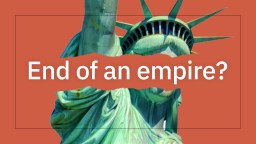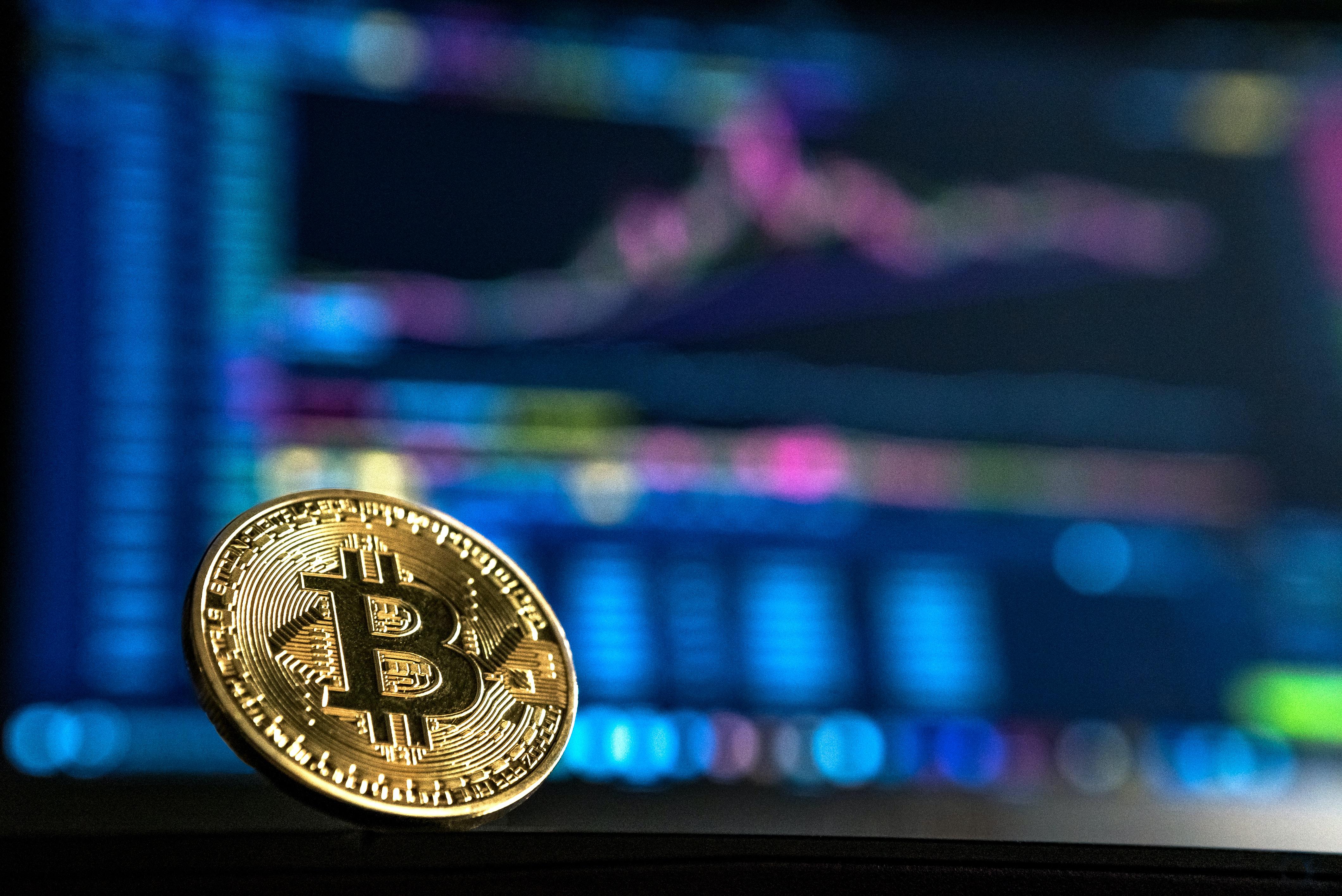Some of us are Bitcoin enthusiasts, while to others this digital currency exists in a far-off plane, spinning in the distant ether like Super Mario coins. To date, Bitcoin hasn’t impacted most of our daily lives – but according to Toni Lane Casserly, co-founder of CoinTelegraph, that’s going to change soon, and it’s going to change us.
As she explains Bitcoin and Blockchain, Casserly illuminates how digital currency empowers the idea of money, and does something that is hard to imagine: it makes money honest. Every transaction that happens on Blockchain is stored permanently as a public ledger – it cannot be erased or disguised. It is a completely transparent system, and it may finally provide the accountability that global financial systems have needed for centuries.
There’s an alarming quantity of red flags pointing to inequality and corruption within the world economy; it’s widely recognized, and yet it seems almost impossible to correct this established system without toppling it all together. Banks and financial institutions rely on one commodity to stay powerful: people’s trust. Trust is blindly handed over – because what’s the alternative? – then systematically abused for the benefit of just a few key players. When something is so systematically entrenched, Casserly says, it takes something radically new to force a paradigm shift.
It makes sense that Bitcoin could turn into a benevolent and democratic force: it was started by underground activists and anarchists, and it’s not the first time anarchy has evolved to become something oddly beautiful. Casserly draws an interesting comparison between Bitcoin and Burning Man: “What is Burning Man – the festival, the experience, the culture, the civilization – what is that other than the world’s most evolved form of anarchy? Burning Man in the ’70s were literally a bunch of awesome, cool anarchists going into the desert… and literally burning down the man.” She continues, “I still don’t think most people understand what is about to emerge in this modern technology landscape.”
Toni Lane Casserly: Bitcoin is the Internet of money. And I say that Bitcoin is the Internet of money not because Bitcoin in and of itself is the Internet but because Bitcoin empowers for the idea of money what the Internet was able to do with information. And in doing that it gives any person in the world the ability to quantify, create, store and share the idea of value in a way that we as a human race have never really been able to do before. And Bitcoin is to Blockchain as email is to the Internet. It is the first major use case of a technology that is so fundamentally going to change the way that we think about our everyday life that it will transform every interaction we have from inception on.
Blockchain is called a blockchain because it's literally just that. It is a series of blocks created by computer solving complex math problems that are chained together. And the way that Bitcoin is created is any time one of these blocks, like imagine you just have a bunch of sheets of paper and anytime one of the sheets of paper gets full a bunch of supercomputers from all around the world are all trying to solve these insanely complex math problems that get exponentially more difficult over time. And to give you perspective, it's literally easier to find one grain of sand in the entire universe than it is for one of these computers to solve a math problem created by the Bitcoin blockchain. And because these are so complex and because anytime one of these little computers tries to solve one of these problems they only have a 50/50 chance of getting it right no matter how many times they try and solve it. And so Bitcoin right now is actually the world's largest super computer. It has 500 times the computing power of Google just to create bitcoins. Now anytime one of these computers solves a math problem they get Bitcoin, they create the blocks, cement it and these blocks are all chained together in one long ring. And that has a genesis block and is essentially infinite from the moment the first block on the blockchain was created. And every transaction that happens on the blockchain is stored on the blockchain cannot to be erased, cannot be deleted because the core properties of this technology are fundamentally that a blockchain is borderless, it is decentralized, it is voluntary and it is immutable.
Bitcoin is and always has been a research project and that's what's so amazing. I mean it was created by this group of underground libertarians and activists and anarchists whose rules in life where to beat death and taxes. And Bitcoin is something that is actually been in these forums for the last 40 years. And it's really interesting because you have these people who essentially see the flaws in every system that exists in the world today. And I would actually say that Bitcoin is very similar to Burning Man in the way that it's created and the way that it's going to grow and the way that it's going to evolve. Because what is Burning Man, the festival, the experience, the culture, the civilization, what is that other than the world's most evolved form of anarchy? Burning Man in the '70s were literally a bunch of awesome cool anarchists going into the desert and shooting guns, which isn't necessarily safe but shooting guns into the middle of the sky and literally burning down the man.
And you see what happens when you allow people to fulfill their ultimate creative potential. People become autonomous, self-reliant and they self-organize. And that's actually how I would say the evolution of Bitcoin, to contextualize it in something that's extremely modern and extremely well known, Bitcoin and the idea of value and money I believe will follow a very similar path because what it actually does and enables as well is for the creative economy to flourish. Because all of these jobs that are going to be replaced by AI, where are people going to get money from? And I fundamentally believe that they will create it literally.
Anytime you have this kind of a revolutionary idea in culture form there are always going to be people who have to adapt and who have to change and the people who have the greatest adaptation to wrap their minds around are fundamentally institutions who have built a business model off of third party trust. Because what the blockchain actually does it take that idea of trust, it's a trustless system. And when I say that some people are like so like trust the system less than normal systems? No, it means the idea of thrust in and of itself is a concept that we have based off of institutional integrity. And if you are an institution with integrity generally I would say you don't have anything to worry about. But people who have been abusing systems that have been in place for century those people are going to be, and everyone knows that they need to change and that they need to be held accountable. But because there are so many issues that are just systemically entrenched you have to create something new I think to really, really shift that paradigm.
And I wouldn't say that a lot of these institutions who are built on third party trust it's like they're not going to completely disappear. It's just like when we had the Internet the idea of publishing didn't go away it just fundamentally evolved in a way that empowered the individual to create their own content and empowered groups of people to self-organize and to create their own worlds and their own publishing models from this invention that fundamentally not only democratized and distributed but decentralized the way that we were able to create and to share and to consume information. And so in addition to that the way that people will actually be able to create this form of value is incredible. It's something I think a lot of people even today have a hard time imagining because it's like telling people in the Renaissance hey, so you know all of that information owned my God, one day you will not only be able to have access to it, you will not only be able to share it openly and freely, but you will be able to create that yourself. And that is what is about to happen with the idea of money and the idea of value.
And to give you a really concrete example of something that's an emergent technology that might just be an economic experiment, a lot of these things in the market right now are just economic experiments, but there's a platform called Steemit, steam with two e's. And it fundamentally is a monetized Reddit and it allows any person who creates content to be directly compensated by a group of their peers for the content they create. So imagine if every up vote on Reddit was monetized. I mean I did one post on this and made $3000 that I could exchange immediately in 50 minutes. And that's incredible. I still don't think most people understand what is about to emerge in this modern technology landscape. And it's fundamentally the ability for any person to create a platform. And if that platform has value, whether that value is in the content, whether that value is in the community, to aggregate new systems of creating sharing and storing value and to quantify those using a digital currency.





